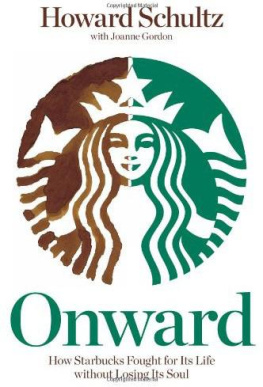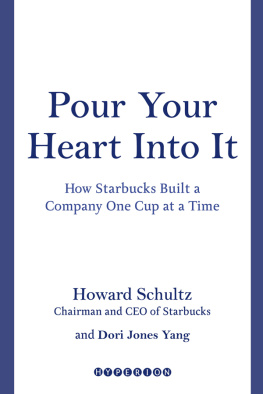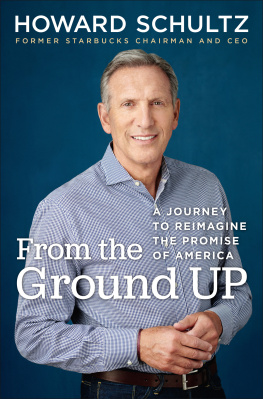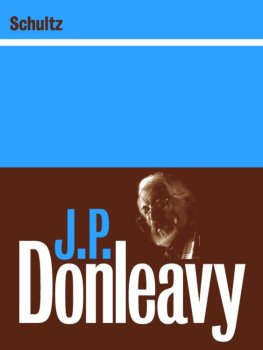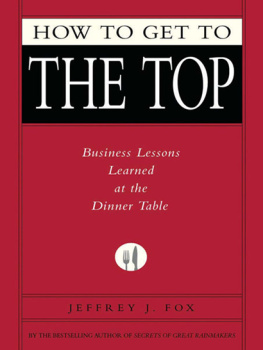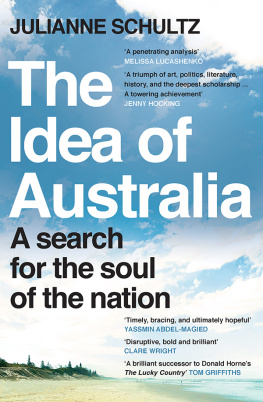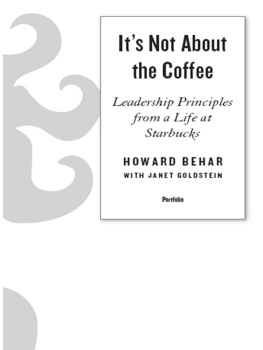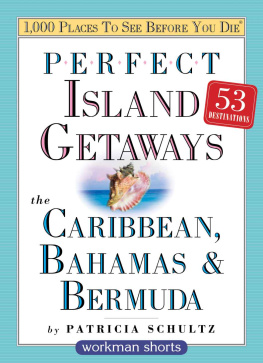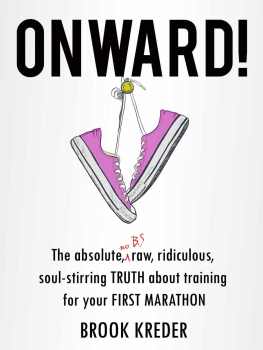Howard Schultz - Onward: how Starbucks fought for its life without losing its soul
Here you can read online Howard Schultz - Onward: how Starbucks fought for its life without losing its soul full text of the book (entire story) in english for free. Download pdf and epub, get meaning, cover and reviews about this ebook. City: Chichester, U.K, United States, year: 2011, publisher: Wiley;Rodale Books, genre: Home and family. Description of the work, (preface) as well as reviews are available. Best literature library LitArk.com created for fans of good reading and offers a wide selection of genres:
Romance novel
Science fiction
Adventure
Detective
Science
History
Home and family
Prose
Art
Politics
Computer
Non-fiction
Religion
Business
Children
Humor
Choose a favorite category and find really read worthwhile books. Enjoy immersion in the world of imagination, feel the emotions of the characters or learn something new for yourself, make an fascinating discovery.
- Book:Onward: how Starbucks fought for its life without losing its soul
- Author:
- Publisher:Wiley;Rodale Books
- Genre:
- Year:2011
- City:Chichester, U.K, United States
- Rating:5 / 5
- Favourites:Add to favourites
- Your mark:
Onward: how Starbucks fought for its life without losing its soul: summary, description and annotation
We offer to read an annotation, description, summary or preface (depends on what the author of the book "Onward: how Starbucks fought for its life without losing its soul" wrote himself). If you haven't found the necessary information about the book — write in the comments, we will try to find it.
Amazon Best Books of the Month, April 2011: Onward is not a puff piece. In just under 400 brisk pages, Starbucks CEO Howard Schultz details the multitude of factors--the recession, new consumer behavior, overexpansion--that led to the companys downturn during 2007-2008. Obviously, Schultz was successful, and his book has plenty of valuable lessons about management and leadership--standard features for most business books. But the most interesting thing about Onward is Schultzs honesty about the whole process, from his determination to make difficult personnel changes to his admission that he considers it a personal failure when he sees someone with a competitors cup of coffee. Schultz even makes the chapters about his agonies over the companys breakfast sandwiches a fascinating study in the minute decisions that go into running a multibillion-dollar company. Conflicts, raw emotions, high stakes: Onward is a business book that goes beyond feel-good maxims and actually has a story to tell. --Darryl Campbell
From Publishers WeeklyStarred Review. In 2000, Starbucks founder and CEO Schultz (Pour Your Heart into It) stepped down from daily oversight of the company and assumed the role of chairman. Eight years later, in the midst of the recession and a period of decline unprecedented in the companys recent history, Schultz-feeling that the soul of his brand was at risk-returned to the CEO post. In this personal, suspenseful, and surprisingly open account, Schultz traces his own journey to help Starbucks reclaim its original customer-centric values and mission while aggressively innovating and embracing the changing landscape of technology. From the famous leaked memo that exposed his criticisms of Starbucks to new product strategies and rollouts, Schultz bares all about the painful yet often exhilarating steps he had to take to turn the company around. Peppered with stories from his childhood in tough Canarsie, N.Y., neighborhoods, his sequel to the founding of Starbucks is grittier, more gripping, and dramatic, and his voice is winning and authentic. This is a must-read for anyone interested in leadership, management, or the quest to connect a brand with the consumer. (Mar.)
(c) Copyright PWxyz, LLC. All rights reserved.
Howard Schultz: author's other books
Who wrote Onward: how Starbucks fought for its life without losing its soul? Find out the surname, the name of the author of the book and a list of all author's works by series.

